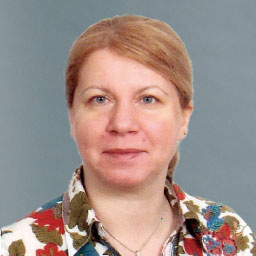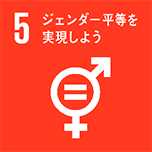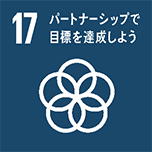ææ
Ph.D. (Japanese studies; concentration in traditional Japanese theatre and gender studies) (SOAS, University of London)
M.A. (Gender studies)
M.A. (Japanese Studies; concentration in Japanese literature and linguistics)
ç 究室ï¼615 å·å®¤
E-mailï¼petkova_galia@eikei.ac.jp
ãªãã£ã¹ã¢ã¯ã¼ï¼Please make an appointment by email or through Teams.
ç 究å
容ï¼See bottom of page
å¡åã§å¦ã¶
å¡åã§å¦ã¶æå¡ç´¹ä»
PETKOVA Galia

ãããã£ã¼ã«
Specialising in Japanese and Asian traditional performing arts, cross-cultural studies, and gender studies.
æ å½åé
æå¦
æ å½è¬ç¾©
Introduction to Art and Literature/è¸è¡ã»æå¦å ¥é
Japanese Culture Studies/æ¥æ¬æåè«
Cross-Cultural Studies/ç°æåè«
ã¡ãã»ã¼ã¸
University years can be the best time of your life. It is entirely up to you what you make of it. You will make friends for life; you will grow intellectually and emotionally. How much you learn depends on you. Your teachers are here to help you and to stimulate you to learn, not to force you. Be curious â everything is interesting if you pay close enough attention. Use these four years well and you will gain both solid knowledge and confidence. But, most of all, learn to think critically, to analyse and understand human behaviour and society â this is the purpose of a university education. And spend time studying abroad. For me, this was my most constructive experience.
ç 究ã«é¢ããèªå·±ï¼°ï¼²
My scholarly interests include traditional performing arts in Asia, focusing on Japan, and gender studies. My recent research projects focus on regional performing arts in Japan such as kagura and various dances, and the female versions of all-male traditional performing arts and kabuki masculine heroes in Japanese culture.
ç 究ãã¼ã
- Cultural representation of gender and the body
- Construction of idea(l)s of femininity and masculinity onstage
- Interweaving of performance, power, gender, and identity
- Traditional performing arts in Asia â mutual influences and distinctive features, role in contemporary society
- Women in performance, representations of femininity
- Gender construction in kabuki
- Local performing arts in Japan â issues of identity and gender
- Shared narratives in Asia
- Lion dances in Asia and Asian diaspora around the world
ç 究ã®ç¹å¾´ã»å 容
As a Japanese studies specialist with a deep interest in every aspect of premodern Japanese society and culture explored within the context of Asia and the world, my research is highly interdisciplinary and comparative. I mostly work in the field of performance studies and gender, examining the way in which societies construct, maintain, enforce, transform and subvert through cultural re/presentation their ideas of gender and gender relations, and especially their ideals of masculinity and femininity. My general research focus has its theoretical basis in contemporary critical thought, more specifically in the modern conceptualisations of the body, power, gender, and performance. Other key terms are the notions of cultural ideology, cultural production, identity, embodiment, hegemony, performativity and citationality of gender.
My recent main research topics are:
-
Production of gender on the stage of Japanese traditional performing arts, from ancient to modern times, as both reflecting societal perceptions and ideals of gender and influencing those. My particular focus has been the exploration of gender and body construction in Edo-period kabuki theatre, which I view as essential for understanding gender construction in premodern Japan, and its influence on contemporary Japanese concepts of âidealâ traditional femininity and masculinity.
-
Conception of female versions of popular all-male performing arts and masculine heroes in the predominantly male traditional performance culture in Japan. There versions include genres such as onna sarugaku âfemale sarugakuâ, onna bunraku âfemale bunrakuâ, onna-zumo âfemale sumoâ, etc., and kabuki productions such as Onna Narukami âFemale Narukamiâ, Onna Shibaraku âFemale Shibarakuâ, etc.
-
Local performing arts in Japan (e.g. nenbutsu kyôgen, rokusai nenbutsu, Kurokawa noh, nôson kabuki, kodomo kabuki, sato kagura, dengaku,etc.) as cultural heritage, and the role of performance in regional communities in terms of gender, identity, policymaking, promotion of local culture and products, food, and tourism.
è«æãªã¹ã
- âProjecting Classicism in Classical Kabuki Theatre â A Gender Perspectiveâ (2020).ãå¤å ¸ã®æªæ¥å¦ : Projecting Classicismã, èæ¨æµ©èç·¨ãæ±äº¬ï¼æå¦éä¿¡ãpp. 811-835 (invited) (詳細ã«ã¤ãã¦ã¯ãé¢é£æ å ±ãããåç §ãã ãã)
- âConsumption, Adolescent Women (ShoÌjo), and Cute Pop Culture in Japanâ (2016). Japanese Studies 25th Anniversary Conference Papers Collection, Sofia: Sofia University Press pp.291-308 (invited)
- âOnna Mono: The âFemale Presenceâ on the Stage of the All-Male Traditional Japanese Theatreâ (2015). Asian Theatre Journal, Vol. 32 (2) (Special Issue Section âWomen in Asian Theatreâ), Honolulu: University of Hawaii Press, pp.387-415 (peer-reviewed) (æ»èªãã)
- âOnna and Onnagata: Representation of Women and the Female Body in Early Kabukiâ (2013). Bulgaria-Japan-The World. Japanese Studies 20th Anniversary Conference Papers Collection, Sofia: Sofia University Press, pp.289â298 (invited)
- âGender and Body Construction in Edo-period Kabukiâ (2009). Core Ethics, Vol. 5, Kyoto: Ritsumeikan University Graduate School of Core Ethics and Frontier Sciences, pp.71-87 (peer-reviewed) (æ»èªãã)
èæ¸
- Female Deities, Dancers and Impersonators: from Mythology to Kabuki Theatre (2019). Sofia: HAINI Publishing House
- Japan: History and Traditional Culture (2008). Sofia: University of Library Studies and Information Technologies Publishing House
- History of Japanese Literature (2008). Sofia: University of Library Studies and Information Technologies Publishing House
- Book chapter âKabuki: Performance of Gendered Bodiesâ (2020). In Irina Holca & Carmen TÄmaÈ, eds., Forms of the Body in Contemporary Japanese Society, Culture, and Literature. Lanham, MD: Lexington Books, pp.49-72
ãã¼ã¯ã¼ã
Japanese studies, Asian studies, traditional performing arts, performance studies, gender, cultural representation, the body, power relations, identity, cultural heritage





 ï¼232KBï¼
ï¼232KBï¼